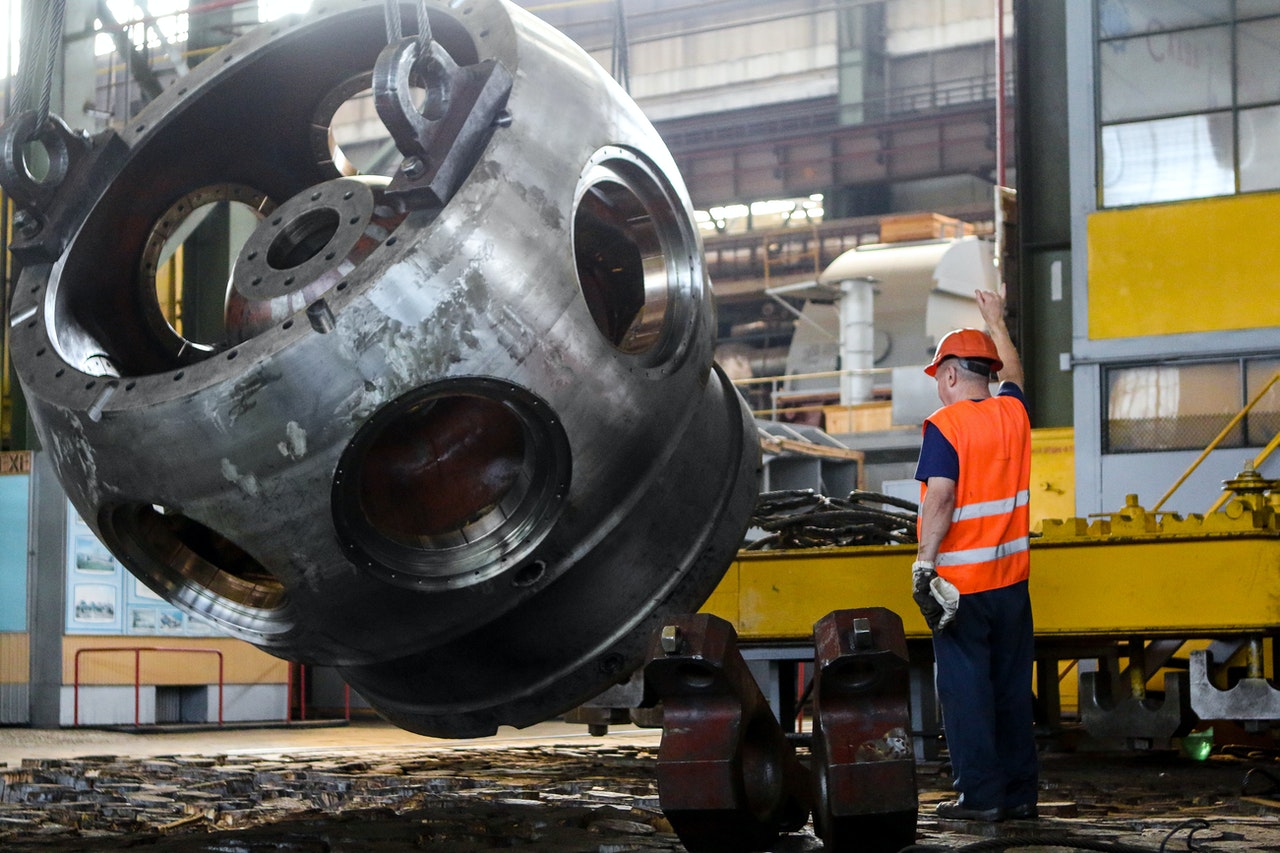The factory floor can be an environment of intense productivity, comradery, routine, and structure. However, to maintain an efficient operation, health and safety should be of paramount concern, especially when working with machinery, chemicals, and heavy objects.
If you happen to be concerned about your employees and think you could be doing more to promote health and safety throughout your working day, you might wish to consider some useful tips that contribute towards maintaining a factory environment.
1. Factory Equipment Maintenance
Making sure to maintain equipment properly is essential to the general health of your entire workforce. Plus, it can ensure that your business continues to operate at its maximum output potential.
The quality of equipment can naturally deteriorate over time, incurring wear and tear and leading to life-threatening scenarios should they be left unaddressed. This can be common in machinery that requires consistent everyday usage, so regular check-ups can be essential. This might also go some way into preemptively stopping any larger problems that are yet to materialize.
It can also be of significant importance to check on your factory’s less immediately apparent aspects, such as the ventilation system and the electronics. This can help you avoid the risk of prolonged exposure to harmful chemicals that might be your industry’s bi-product. Dealing with toxic exposure is an incredibly impactful factor on the safety of factory workers worldwide.
If you are unsure how regularly you should conduct safety audits for your machinery and equipment, you might gain some insight by contacting the manufacturer of the specific model you are concerned with. They may be able to promptly send out a specialized engineer to help you with your individual needs.
2. Replacements and Upgrades
 As technology continues its rapid advancement, it is vital to upgrade your factory equipment to make sure that you are implementing the safest and most efficient options available.
As technology continues its rapid advancement, it is vital to upgrade your factory equipment to make sure that you are implementing the safest and most efficient options available.
Outdated machinery can lead to accidents involving faulty parts and unnecessarily complicated processes. Moreover, replacement parts will inevitably be harder to come across as outdated models may eventually be discontinued by their manufacturer.
For replacement conveyor belts, you might want to consider Fluent Conveyors, who offer a fantastic, diverse range of options that can cater to many different types of industry, from heavy-duty to cleated slider bed belts.
Whether you are in the automotive industry, the food sector, or anything in between, a decent conveyor belt system can be the point of automation that makes workflow as streamlined as possible. Taking some time to consider your current system’s efficiency and safety can be crucial for your daily productivity.
Furthermore, a reliable supplier can save you a vast amount of time and money in the long run, so doing your research into the availability of your required equipment and parts can help you obtain a sense of direction.
3. Personal Safety Equipment
Aside from the machinery, your employees’ equipment will require to protect them can differ immensely from role to role. As a rule of thumb, head protection should be mandatory for all employees working with heavy machinery on the factory floor.
You may want to take a look at OSHA’s criteria for head protection if you are unsure as to whether or not this applies to your specific operation.
Other forms of personal safety equipment include but are not limited to eye protection, work boots, gloves, and masks. In general, clothing is a factor to consider in terms of health and safety, as comfort and practicality can greatly contribute to an employee’s ability to carry out their tasks efficiently.
For example, slacks allow mobility when moving around the factory floor while at the same time providing coverage for the legs. Finding the right balance for your dress code can relate directly to your specific type of industry.
Visibility plays another important role in factory work’s safety element, so making use of fluorescent vests can help with this.
4. Secure Storage Availability
Secure storage can be vital to any manufacturing industry’s safety factor, whether it is fridges for food products or cabinets for dangerous chemicals in a laboratory environment, you will no doubt need somewhere secure to keep your materials and products.
Ideally, storage should be somewhere secure, accessible, and readily available for maintenance. Organized storage can work wonders in terms of your inventory and stock checking requirements, as well-recorded levels can help reduce unwanted wastage and unnecessary ordering.
Separating any combustible materials into areas away from your main worksite can help reduce your employees’ risk of injury should anything go wrong. Taking a preventative approach by accounting for a worst-case scenario can be a useful indicator of storing your more dangerous materials.
This is relative to your individual operation, so it might be worth taking time to review the logistics and practicalities that pertain to your needs. For example, where might you need to set up your storage space in relation to your fire escapes and floor plan?
5. Comprehensive Training
 Providing employees with extensive training can be a surefire way to reduce risks that can occur due to human error. Training is of the utmost importance when it comes to handling hazardous materials and the operating of machinery.
Providing employees with extensive training can be a surefire way to reduce risks that can occur due to human error. Training is of the utmost importance when it comes to handling hazardous materials and the operating of machinery.
When hiring a new employee, it is imperative to supply them with the knowledge they will require to conduct their role safely and efficiently. This not only reduces the chance of harm to the individual but allows them to approach their work confidently and comfortably.
Regular training is also useful in increasing your output’s efficiency, thus cutting down on time spent on each task, nurturing a positive working environment that workers are willing to engage with. Training is required if you want to make sure you stay up to date with current technology; adaptability is a highly valuable driving point in a company’s success.
Working on developing skills is a highly impactful factor in the workplace, as it emanates a feeling of progression and mobility within the company. The more competent your employees, the more you can expect an increased level of innovation and autonomy, whatever the industry happens to be.
You should also promote good communication with your employees so that any potential issues can be dealt with quickly, and your staff feels like they are being listened to, which fosters an open and productive working environment.
6. Keeping Records and Practicing Organizational Skills
Even the mightiest of organizations can find themselves undone by poor paperwork and record-keeping. Keeping records of employee health and safety training, maintenance audits, and generally any formal documentation can be a good way of developing your current measures.
Records are a helpful resource to fall back on and may be able to keep you covered from potentially harmful lawsuits and liability issues.
Furthermore, if you happen to find yourself in the unfortunate position where you or one of your employees suffers a workplace injury, recording the event can help work towards improving your health and safety practices in general.
This is partly because you will have the option to draw upon an archive of knowledge to identify any recurring patterns, perhaps allowing you to take measures to combat this in the future and highlight which areas your employees need further training in.
This can go a long way towards helping with workplace injury claims, as insurers will often need to see recorded evidence of the event. Failure to do so might land you in serious turmoil, including negligence claims against you and your business.
Having a clear communication and protocol system when it comes to the health and safety aspect of your company can lead to employees feeling more secure and comfortable in the knowledge that methods are in place to protect them should something go wrong.
7. Legality and Insurance Options
 To ensure that all of your employees are protected by law from a workplace injury, the correct type of insurance is a must.
To ensure that all of your employees are protected by law from a workplace injury, the correct type of insurance is a must.
This can also protect you as the employer from lawsuits and avoid unwanted confrontations in general. Insurance protection can also help cover your manufactured products on the off chance that they cause harm to a customer or a fault in its design leads to issues with its viability.
In many cases, state law will require you to at least possess worker’s compensation insurance, so it might be worth checking to see whether or not this applies to you.
Business income insurance can be a great way to continue supporting your business should you lose the means of production due to an unforeseen event. It allows you to cover the costs that can occur when you cannot carry on working for a certain amount of time.
The options are varied, and manufacturing businesses often require a unique form of insurance, so turning to professionals for advice can be a great time saver.
8. Promoting a Safe Factory Environment
With all your health and safety methods in place, the ownness can fall upon you as the employer to promote a safe and secure working factory environment. This can be a great way to emphasize your employees’ well-being as a respected and cared for the workforce.

I am Adeyemi Adetilewa, an SEO Specialist helping online businesses grow through content creation and proven SEO strategies. Proficient in WordPress CMS, Technical Site Audits, Search Engine Optimization, Keyword Research, and Technical Writing (Portfolio).
I help brands share unique and impactful stories through the use of public relations, advertising, and online marketing. My work has been featured in the Huffington Post, Thrive Global, Addicted2Success, Hackernoon, The Good Men Project, and other publications.

